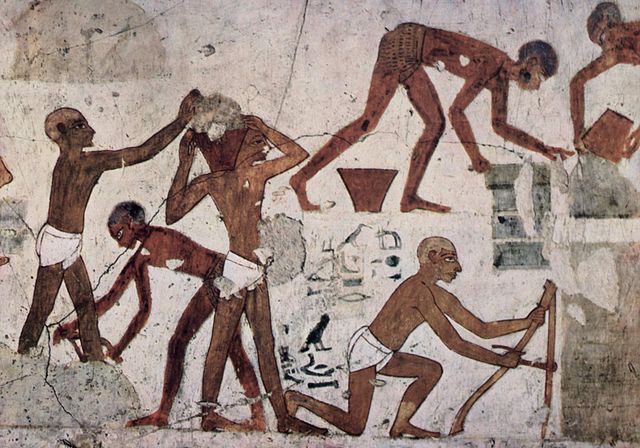|
A N. T. Wright Sermon Summary As stated in the Lord’s prayer, God wants His Kingdom to come and His will to be done on earth as in heaven (Matthew 6:9-10). Note that it focuses on earth, instead of somewhere above.
When Christ returns, He will transform the world back to what it was meant to be, the world God created and considered good (Genesis 1, 2). And we will be raised as Christ was raised (1 Corinthian 15:20-28). What God did for Christ at Easter is what He will do to all creation, utterly renewed, with no more corruption and decay and with God above all (1 Corinthians 15:20-28). But currently, we are living in a transition period. Today, people want to play their own games, worshiping and pursuing pleasure in what the world provides, while ignoring the future. We see chaos and destruction around us. The world is in pain. Creation is groaning (Romans 8:18-26). Fortunately, we are integrated with Christ and have the Holy Spirit dwelling in us. We are heaven’s citizens following heaven’s ways. This is like Roman citizens living outside of Rome but following Rome’s ways. Don’t despair. Instead, we should share Christ’s suffering and carry our cross (Romans 8:26-27). Our hope is in things we don’t see. Wait patiently. With the love of God, pray agonizingly. As the Father sent Christ, Christ sent us to the world. Having said that, we shouldn’t try to change the world just with our own intellect and capability. We are weak, but God’s power is made perfect in our weakness (2 Corinthians 12:9-10). Only God can build His kingdom. We rely on God to bring order to His creation and make the world flourish. One day, the creation will be liberated. Our work in the Lord will not be in vain, and we will see how our little effort fits into the Kingdom (1 Corinthians 15:58). Because of God’s love, we will reign through Christ and share His glory (Romans 5:17, 8:31-39). Today, we follow His guidance and do our small parts. Be faithful in your calling and cheerful in your service for Him, so that you may be fruitful for His Kingdom. Summary of a sermon by N. T. Wright, titled, “The Future of the World.” https://www.youtube.com/watch?v=BWNKp3jYyRo
0 Comments
We have heard of the importance of having a purpose or mission in life. But how can we know what it is?
First, our mission is to know the One who gave us the urge to find a mission. In other words, know God. We came from Him and shall return to Him. During our short time here, our foremost mission is to know our Father in heaven and enjoy Him. Second, our mission is to make this world a better place—make earth more like heaven. Life is foggy. We can only see the path right in front of us. At every fork, trust God and follow His guidance. Try to take the one that will bring more gratitude, justice, kindness, forgiveness, love, and courage into the world. Try to take the right path not just on big things, but on little things also. If we are not faithful in handling small things, how will we be able to handle larger ones? Third, our mission is to spend time in areas that (a) we can exercise our greatest talent (the talents we are most delighted to use), (b) are most appealing to us, and (c) are most needed by the world. They should be where our deepest gladness meets the world’s deepest hunger. Try to find them by identifying, classifying, and prioritizing our talents and skills. They should be written in our hearts. God will help us. Do not think too much. We will be wrong sometimes, so be prepared to adjust as we go. Also, do not worry or be anxious. We may think that our life has no purpose or that we’ve done nothing meaningful. But we won’t know the effects of what we have done until the day we see Him. When we think we have accomplished something meaningful, we should thank God for His guidance and help. To summarize, our missions are to know God, make the world a better place to live, and use our talents to happily meet the world’s needs. Summarized from “Finding your mission in life,” a chapter in the 2017 edition of What Color Is Your Parachute? by Richard N. Bolles. 人生的使命 我们都听说过人生目的或使命的重要性,但如何知道它们是什么呢? 首先,我们的使命是认识给我们渴望寻找使命的那一位,换句话说就是认识上帝。我们来自祂,也会归于祂。 在一生短暂的时间内,首要任务是认识天父并享受祂。 第二,我们的使命是使这个世界变得更美好,使这世界更像天堂。 生活是浓雾弥漫的,只能看到眼前的路径。在每一个三叉路口中,都当相信上帝, 遵循祂的指导。 尽量尝试带给世界更多的感恩、正义、善良、宽恕、仁爱和勇气。 不仅在大事上努力走正道,在小事上也要这样。如果处理小事不忠心,怎能忠心地处理大事呢? 最后,我们的使命应该是发挥自己最大的恩赐。这些恩赐既是我们最喜欢使用、对我们最有吸引力的,同时也是世界最需要的。它们是我们最深的喜乐,也能满足世界最深的饥渴。尝试通过对我们的天赋和技能进行识别、分类、列出优先次序来发现这些恩赐。它们应该是写在我们心上的,上帝会帮助我们发掘出来。 不要想太多。我们有时会犯错误,预备好不断调整要走的道路。 不必担心或忧虑。我们可能认为自己的生活漫无目的,又或者没有做出任何有意义的事。但是我们直到见到祂的那天并不知道所有做过的事的果效。如果认为成就了某些事,就要感谢上帝的引导和帮助。 总而言之,我们的使命应该是认识上帝,使世界成为一个更美好的地方,并利用我们的恩赐快乐地满足世界的需要。 Our Heavenly Father invites us to work. Why? He could do everything without us, yet He chooses to involve us. Perhaps He wants the work to give us dignity, responsibility, or a sense of significance as we strive to make a little difference, however little, on earth.
We’ve seen people do good work throughout history. Examples include the disciples forming the first century church; the founding fathers of democracy in the eighteenth century; the generation who fought Nazi-led genocide; the civil rights leaders who fought racism; parents in every generation building up stable families; and creators of technologies that liberated many. According to some studies, we still have more than 40 million people held illegally in slavery. Kids are forced to roll cigarettes fourteen hours a day, and kids younger than ten are sold to pedophiles. We need people to raise their voices to identify the culprits. We need people to stand up, using law enforcement and survivor services, to stop such practices. If Christians do good work, the work will serve as light to the world, shining before others, who may see these good deeds and glorify our Father in heaven (Matthew 5:14-16). Having said that, we must be careful to recognize the right types of work. For example, during the twelfth Century, fighting in the Crusades probably was considered the work God wanted the people during that time to do. In the story about Martha and Mary, Martha thought she did a lot of work for Christ. But Christ reminded her it was more important to quietly listen to Him (Luke 10:38-42). Having a good relationship with God and developing one’s character take precedence over work, as they both inform our decision on what work we should do. By doing such work, we are following God. This gives us a glimpse of His Kingdom on earth. May our work be good deeds, shining before others, so they may glorify our Heavenly Father. Summary of a sermon by Gary Haugen at: https://www.crosspreach.com/sermons/listall/25/page:9 With excerpts from a Tim Keller sermon http://www.gospelinlife.com/free-sermon-resource http://www.gospelinlife.com/discovering-your-spiritual-gifts-29 世界之光 天父邀请我们加入祂的工作与他同工。这是为什么呢?祂本可以自己做一切而不依赖我们,然而却选择让我们参与其中。祂可能希望工作带给我们尊严、责任感或生命的意义。 纵观历史可以看到许多善工的例子:第一世纪的门徒组成的基督教会、十八世纪美国推行民主制度的开国元勋、与纳粹党种族灭绝战斗的一代、与种族歧视斗争的民權運動领袖、每一代建立稳定的家园的父母以及带给人解放的新技术发明创造者。 根据研究现在仍然有超过四千万人被非法奴役,孩子被迫每天卷烟十四小时,十岁以下的孩子被卖给恋童癖者。需要有人伸张正义识别这些罪魁祸首,需要有人站出来执行法律,为幸存者提供保护服务,从而制止这种罪恶的活动。 如果基督徒做善工,这些工作可以成为世界的光,照在人面前使他们可以看见我们的善行,归荣耀给我们天上的父(马太福音5:14-16)。 话虽如此,必须谨慎选择正确的工作。例如十字军东征的战争在十二世纪被错误地认为是替上帝而做的事工。 在马大和马利亚的故事中,马大以为她为基督做了很多事,但基督提醒她更重要的是安静地聆听祂的话 (路加福音10:38-42)。 与上帝建立良好关系并培养基督徒的品格当优先于工作本身。 有了这样的关系和品格可以帮助我们选择做正确的事。我们做这样的工作就是在跟随神,也可以瞥见祂的国度降临在地上的情景。 愿我们的工作成为好行为照在人前,叫他們看見就將榮耀歸給天上的父。 Christians have some common attributes, such as one Spirit, Lord, faith, baptism, and God the Father (Ephesians 4:4-6). But we are equipped differently to serve in different ways, to build up the body of Christ (Ephesians 4:7-12).
We have different genes, upbringings, and living environments. Few can be good lawyers and doctors simultaneously. Few can be good preachers, counsellors, and administrators, though a church needs all three types of people to build it up. Each of us is God’s unique work of art, prepared in advance by God to do different types of work (Ephesians 2:10). But what should we do? How do we know our calling? Note that the term “calling” implies being called. We do not call ourselves; God calls us. One way to discern a calling is to identify our inner desire (what moves us inside) and our ability. We should also investigate the needs around us. Having said that, to do a job well, we need to develop the corresponding skills. To be good at something, work hard at it, with discipline and focus. Be sure to diversify your skills to a certain degree. But accomplishing great Christian work does not guarantee that we’re close to God. Look at the disciple Judas, the prophet Balaam, and the king Saul. An externally successful minister can be spiritually dry, lacking Christian characters. A person can sound very spiritual, but if he does not love, he is only a resounding gong (1 Corinthians 13:1). Martha did many things for Christ, but Christ reminded her not to worry too much and neglect His teachings (Luke 10:38-42). Though serving is important, being close to God and developing Christian characters take precedence. Every Christian is God’s unique work of art, equipped to serve differently to build up the body of Christ. We should recognize our gifts and develop them to serve others. But remember that our relationship with God is more important. Summarized from a Tim Keller sermon: http://www.gospelinlife.com/free-sermon-resource 发现属灵恩赐 基督徒有一些共同的属性, 例如只有一个圣灵,一个主,一个信仰,一个洗礼以及一个天父 (以弗所书4:4-6)。 但我们各有不同的装备,用不同的方法来服事建立基督的身体 (以弗所书4:7-12)。 因为不同的基因、成长和生活环境,很少有人会同时成为好的律师和医生。 教会需要优秀的传道人、辅导员和管理人员, 但很少有人能同时胜任这三项任务. 每个人都是上帝独特的艺术品,预备来做不同善工的(以弗所书2:10)。 但怎么知道应该做什么呢,怎么知道自己的呼召呢? 请注意一个人不能呼召自己,只有上帝才能呼召他。 辨别呼召的一种方法是识别自己的内在欲望(使我们内心感动的事)和能力。还应该研究周围的需求。 话虽如此,需要发展相应的技能来做好工作,需要努力、自律和专注,精益求精。 我们的技能也应该有一些多样化。 但是完成伟大的基督事工并不保证与上帝亲近。 看看门徒犹大、 先知巴兰和扫罗王。表面上成功的传道人在属灵上可能很干枯,缺少基督徒的品格。 一个人讲道听起来可以很属灵,但如果没有爱,他不过是响亮的锣而已(哥林多前书13:1)。 马大为基督做了很多事,但主提醒她不要为太多的事担忧而忽略安静地聆听祂的教导(路加福音10:38-42)。 服事固然重要,但首先要注意亲近上帝并培养基督徒的品格。 总而言之,每位基督徒都是上帝独特的艺术品,祂预备我们在不同岗位上服侍,一起来建立基督的肢体,确定自己服侍的恩赐,发展它们来帮助他人。但请记住更重要的是我们与上帝亲近的关系。 We live in a workaholic culture. Those in higher places work hard to justify high compensation, while of lesser means hold multiple jobs to make ends meet. Due to societal changes, a more globalized economy, and technological advancement, numerous jobs are constantly being eliminated. This creates intense stress, particularly for those whose identity is tied to their work (e.g. “I am a programmer, painter, etc.”).
We need rest. Even God, who does not grow tired, rested after finishing His creation (Genesis 2:2). But restlessness is pervasive, perhaps because of sin. “The wicked cannot rest” (Isaiah 57:20). For example, Christ showed intense unrest when he took over our sins on the cross, and he cried out to God, “Why have you forsaken me?” (Matthew 27:46). Trying to justify our value by our performance can cause restlessness. Such pursuit has no end. We can become slaves to our insecurities and others’ expectations. Like the Israelite in Egypt, we will find no rest. On the cross, Christ took on our sin so we could be loved as God’s children (2 Corinthians 5:21, Matthew 3:17). We don’t need to justify our value. Those who are weary and burdened can go to Christ. Through Him, we are free. He will lift our burdens and refresh us. He will give us rest (Matthew 11:28). Rest should start with worship, reminding us who God is and who we are. By acknowledging God as Lord, we can relax and rest. In rest, we can enjoy God’s creation. We can spend time on something we ordinarily don’t do. In rest, we can let ourselves wander, without planning every moment of our time. If we have to work continuously for a long time, like doctors during internship, we should schedule rest after that. Note that in rest, we can miss opportunities. Treat it as leaving something on the table for others to have. We can form support group and rest with others like us. Through Christ’s death on the cross, we become God’s children. In God’s eyes, we are good. Learn to work and rest. Learn to enjoy the rest that God enjoyed after His creation. Summarized from a Tim Keller sermon: https://gospelinlife.com/downloads/work-and-rest-5314/ 如何平衡工作与休息 我们生活在一个为工作抓狂的文化中。居高位的人忙着证明自己应得的高薪,而草根市民则必须从事几份工作来维持生计。随着社会变迁、 全球化经济的发展以及技术进步,许多工作都不断地被淘汰,由此给人带来的压力之大可想而知,特别是对那些将身份与工作联结在一起的人(例如那些自我介绍“我是程序员,画家”的人)。 人需要休息,即使是不会疲倦的上帝完成创造之工后也休息下来(创世纪2:2)。 但焦躁不安是随处弥漫的普遍现象。这可能是出于我们的罪, “恶人不得平静(以赛亚书57:20)”。基督在十字架上代替我们的罪孽时,内心强烈地挣扎,向上帝大声喊着说:“你为什么离弃我(马太福音27:46)?” 焦躁不安也可能是因为试图通过表现来证明自我价值. 这样的追求是永无休止的。我们可能成为自我安全感和他人期望的奴隶,与在埃及作奴隶的以色列人一样没有安息。 基督在十字架上背负了我们的罪孽,使我们成为上帝蒙爱的儿女(哥林多后书5:21; 马太福音3:17), 不再需要通过表现来证明自我价值。劳苦和担重担的人都可以归向基督,藉着祂得以自由。祂将除去我们的重担,恢复更新我们,赐给我们安息(马太福音11:28)。 休息应该从敬拜开始,提醒我们神是谁,我们又是谁。承认上帝掌管一切,就可以放松和休息。 休息时,可以享受神的创造,也可以把时间花在通常不做的事情上。 休息时,可以让自己轻松地闲游, 无需分分秒秒地计划或安排时间。 如果像实习医生那样必须长时间不停地工作,应该安排完工之后的安歇时间。 尽管在休息时可能会错失良机,但应将其视为留给别人的机会。 可以成立支持小组,与相似我们的人一起休息。 总而言之,我们籍着基督在十字架上的受死成为上帝的儿女。在上帝眼中我们是良善的。学会工作和休息,享受上帝创造之后所享有的安息。 For many of us, work is all-consuming. Family members don’t have time to eat together, and friends don’t have time to hang out. But work can fail. And for those who define themselves by their work, this failure can be devastating.
What is the Bible’s instruction on work-life balance? First, work is good. God worked to create the world (Genesis 2:2). We are made in God’s image and likeness. So, work is good for us also (Genesis 1:26), and God has prepared the good work we should do (Ephesians 2:10). Good work takes many forms. For example, God planted a garden for the people He created (Genesis 2:8). Christ on earth worked in construction. Parents toil to raise their children. These are different forms of work. We should choose work that fits us, based on abilities God gives us, but also work that addresses the needs around us. Then balance work with rest. Rest is essential. Even God rested after He worked to create the world (Genesis 2:2). But we can’t have true rest if our work is entirely for ourselves, or we use work to define ourselves. In the 1976 movie Rocky, Rocky Balboa says he worked very hard because he didn’t want to be “another bum from the neighborhood.” Describing her drive, the famous singer Madonna once said, “I still have to prove I'm somebody.” It is difficult to rest with such goals. Christ gives us real rest (Matthew 11:28). Our value is found in us being God’s children, a grace from God through Christ’s death on the cross. Such acceptance will give us real rest. Work is good. We should do the good work God prepared for us, work that fits us and addresses the needs around us. We also should balance work with rest. Believing in Christ will give us real rest. Summarized from a Tim Keller sermon: https://gospelinlife.com/downloads/made-for-stewardship-5206/ 如何实现工作与生活的平衡? 许多人将所有的时间都消耗在工作上。没有时间和親人一起吃饭,也没有时间与朋友闲逛。但是,工作可能会失败。对于那些用工作来定义自己的人,如果工作失败了,他们就会被压垮。 圣经对工作与生活之平衡有什么概念? 首先,工作是好的。神也工作了一段时间创造天地 (创世纪 2:2)。 我们是按照神的形像而建造的。因此,工作对我们来说也是好的(创世纪1:26)。 此外上帝已经准备了我们该行的善工 (以弗所书2:10)。 好的工作有多类形。例如,上帝为祂创造的人栽种了一个花园 (创世纪2:8)。基督在世上从事建筑专业。父母努力地抚养孩儿。 这些都是不同形式的工作。 根据上帝赋予我们的能力,选择适合我们的工作。 并且,工作的选择应定于我们周围的需求, 而不应把工作集注在自己的渴望上。 然后利用休息来平衡工作。因为休息是必不可少的, 连同上帝完成创造世界后也休息了 (创世纪2:2)。 倘若我们把工作专注在自己身上, 或我们用工作来定义自己,那么我们就很难获得真正的休息。在1976电影Rocky中,Rocky Balboa曾说,他工作得非常努力,因他不想成为邻近的另一个混蛋。描述她的推动力, 名女歌手Madonna认为她仍然必须证明她是特别的。这样的追求是很难休息的。 基督给我们安息 (马太福音11:28)。接受我们的价值是基于我们是神的儿女, 来自上帝的恩典, 通过基督在十字架上的死。这种接受使我们获得真正的休息。 总而言之,工作是好的。做上帝为我们准备的事。根据神给我们的能力,挑选, 适合我们的和解决我们周围需求的, 工作。我们还需平衡工作与休息。对基督有信心会带给我们真正的休息。 Should Christians passionately improve things on earth? Shouldn’t we focus on our eternal life, Christ coming back? Let’s learn from Titus 2:11-3:9.
We as Christians shouldn’t tie ourselves and our identity to our work on earth (v3:3). We shouldn’t be enslaved by worldly passions or addicted to things like money, personal gain, or self-fulfillment. Instead, we should look forward to our eternal life in a perfect world of justice and peace, with no sufferings (v3:5-7). Having said that, Christians shouldn’t ignore things on earth. We should be eager to do what is good, bringing glimpses of our wonderful future to earth now (v2:14; 3:1, 8). So, live a self-controlled, upright, and godly life (v2:12). Work to help human flourish. This includes helping the community; and upholding public justice and public good. For example, if we have the power, don’t withhold the good from those to whom it is due (Proverbs 3:27). But beware that we, the broken, live in a broken world. Life now isn’t black and white but is gray. Our work (e.g. practicing law, issuing stocks or bonds, or cleaning toilets) cannot be perfect. Many idealists, initially passionate to change the world, become cynical after repeated failure. In “Leaf by Niggle,” JRR Tolkien describes an artist trying to draw a great tree. Inundated by mundane chores and duties, and the need to help others, he only manages to draw a leaf before he dies. Then, before him is the great tree for him to further improve upon. Earth is full of thorns and thistles. Don’t be discouraged if you can only draw a leaf. Just do what you can. Have faith that someday, you will see our great tree and improve on it (v2:13). To conclude, by grace and through Christ’s sacrifice, we become God’s children with a glorious future. We should do good and work to bring glimpses of our wonderful future to earth. But we, the flawed, live in a defective world. Just do what we can. One day, something even better than our dreams will come true. This is our blessed hope. Summarized from a Tim Keller sermon: https://gospelinlife.com/downloads/hope-for-your-work-6026/ 我们为什么以及如何努力让世界更美好? 基督徒应该热情地改善世界吗?难道不是应该专注于永恒的生命和基督的再来吗? 让我们来一起学习提多书2:11-3:9。 基督徒不应该将自己和自己的身份与地上的工作连在一起 (提3:3),也不应成为世俗享乐的奴役,沉迷于金钱、个人利益或自我满足之类的事情上。 相反地,应该期待那永恒的生命, 一个正义、 和平、完美而且没有苦难的世界(提多书3:5-7)。 话虽如此,基督徒不应当忽视地上的事,反倒应该热心行善,让世人可以一瞥我们美好的未来(提2:14; 3:1,8)。 因此,应过着自守、公义、敬虔的生活 (提多书2:12),努力地促进人类蓬勃发展,包括帮助社区、维护公共正义和公共利益。如若有行善的力量,不应推辞,就当向那应得的人施行 (箴3:27)。 但必须注意作为破碎的人活在破碎的世界中,真实的生活不是黑白分明而是灰色的。我们的工作(例如从事法律、发行股票债券或清洁厕所)都不是完美的。 许多最初对改变世界充满热情的理想主义者在屡屡失败之后变得愤世嫉俗。 J.R.R.托尔金在“尼格尔的叶子”中描述了一位试图绘制一棵大树的艺术家。琐碎的事务职责以及帮助其他人的需要淹没了他的时间,使他在去世前只能画出一片叶子。可是在这位艺术家死后,展现在眼前的竟然是一棵他可以进一步改善的大树。 世上充满荆棘和蒺藜。如果只能画一片叶子,不要泄气,尽己所能。相信有一天将可看到自己的那棵大树并进一步改善它 (提多书2:13)。 总而言之,我们藉着恩典和基督的牺牲成为上帝的儿女,拥有满有荣光的未来。当努力行善,让世人可以一瞥我们美好的未来。但我们是有缺陷的人,生活在有缺陷的世界中。尽己所能,使世界更美好。相信终会有一天比梦想更好的一切将会实现。这就是我们所盼望的福。 We shouldn’t be idle or depend on others to take care of us (1 Thessalonians 5:14). But many consider their work to be a drag. Can work be less grueling? What are some attributes that would make work more fulfilling?
Our work shouldn’t focus on our own fulfillment. Many work solely for their own fame or fortune. Self-centeredness brings a lot of pain. Our work should not define us, such as “I am an engineer, a painter, a housemaid, a housewife, or a preacher.” If we let our profession define our meaning of existence or our identity, work will become our idol and burn us out. The movie Chariots of Fire contrasts the attitudes of two British runners in the 1924 Olympics. Harold Abrahams won the 100-meter dash. He said when he ran, he had “10 lonely seconds to justify my existence.” He also said, “I’ve never known [contentment]. I’m forever in pursuit and I don’t even know what I am chasing.” Our status and our identity should not depend on how well we have done our work. Our identity is from being God’s wonderful children, based on what Christ has done for us. God embraces us because of Christ, not our work. The other runner, Eric Liddell, won the 400-meter dash. He said, “I believe God made me for a purpose … but he also made me fast. And when I run, I feel His pleasure.” Running didn’t define him. After winning the Olympics, he left England to be a missionary in China. Our work should utilize the gifts God has given us. But if God calls us to do something that doesn’t seem to fit, just do it. He will supply the necessary power. We should sincerely try our best. Work to appreciate what God has done for us (1 Thessalonians 4:1). Work to honor God. Finally, work to address needs around us, serving and benefiting others (1 Thessalonians 4:9-12). Work to bring human flourishing as an expression of love. Summarized from a Tim Keller sermon: https://gospelinlife.com/downloads/work-6449/ 快乐地工作 我们不应懶闲着或依靠别人来照顾和供给我们( 帖撒罗尼迦前书5:14)。但许多人认为他们的工作很烦累,工作可以没有那么痛苦吗? 哪些特性可以使我们对工作更加满足呢? 工作不应专注于自己的成就感。许多人为了名声或财富而工作,自我中心会带来很多痛苦。 不要用工作来定义自己,例如我是工程师、画家、女仆、家庭主妇或宣教士。如果让职业定义自己的身份或存在的意义,那么工作将成为偶像,浪费我们的一生。 电影 “烈火战车Chariot of Fire”中描述了1924年奥运会参赛的两名英国运动员。他们的人生态度形成鲜明的对比。 Harold Abrahams赢得了100米短跑。他说当自己在跑步时,“我用寂寞的10秒钟来证明自己存在的价值。” 他还说:“我从没有满足的感觉。我永远都在追求,但不知道自己在追逐什么。” 一个人的地位和身份不应该取决于他的工作做得如何。因为基督为我们所做的一切,我们的身份是上帝美好的儿女。上帝拥抱和珍爱我们是因为基督, 而不是我们的职业。 另一位选手Eric Liddell赢得了400米短跑。他说:“我相信上帝造我有祂的目的 … 但祂也使我跑得非常快。当我跑步时,我感到祂的喜悦。” 跑步并没有定义他,夺冠之后他离开英国到中国宣教去了。 当使用上帝所赐给的才能去工作。但如果上帝呼召我们去做一些好像不太适合自己的事,那都放胆去做. 祂将提供必要的力量。 真诚地努力做好每一件事, 百分之百地投入和付出。 让所做的事取悦上帝,感激祂为我们所做的一切(帖撒罗尼迦前书 4:1)。 让所做的事荣耀上帝。 让所做的事满足周围人的需求,为他人服务, 使他人受益(帖撒罗尼迦前书 4:9-12)。努力促进人类蓬勃发展,以此表达我们的爱心。 Can very low-level work be dignified? Why shouldn’t bosses exploit employees to maximize profit? Why shouldn’t employees do as little as possible? Let’s learn from Paul’s teachings for first-century slaves and masters.
But first, did Paul condone slavery? During Paul’s time, slaves were servants by contract. It was not based on race, nor was it a permanent position. Slaves could own other slaves and properties. Many were war captives. In Ephesians 6:5-9, Paul focuses on how slaves and masters should behave in such a social structure, not whether there should be such a structure. In fact, following Paul’s teaching would end the slave system. Early churches were filled with slaves who worked in humiliating and painful environments. Paul treated them with respect, addressing them first. Paul told the slaves to obey and serve their masters wholeheartedly, as if they were serving the Lord, because the Lord would reward each one for the good they do. Then Paul said something totally against the norm. He told the masters to treat their slaves the same way. He also added that God wouldn’t show favoritism to anyone. Before God, masters and slaves are equal, both made in His image, saved by grace, not works. Their status does not depend on their work, but rather on being God’s children. Naturally, each should treat the other with respect and serve each other; God will reward them for the good they do. If bosses have such attitudes, they will treat their workers well. And workers will not work only when their bosses are around. Such attitudes would end the slavery structure during Paul’s time. Centuries later, during the abolitionist movement, Christians vigorously pushed for abolishing a different type of slavery. As to the workers themselves, they are dignified no matter their rank. During the Reformation, Martin Luther argued that different types of work can all be callings from God. Milkman, housemaid, lumberjack, monk, or priest—all can enhance human flourishing. We are equal before God. Our status is based on being God’s children. Our value comes from God, not our work. Both bosses and employees should respect and serve each other. God will reward the good work we do. All kinds of work can be dignified, as all can help people flourish. Summarized from a Tim Keller sermon: https://gospelinlife.com/downloads/our-work-and-our-character-6099/ 工作中的尊严 从事基层工作可以得到尊严吗?为什么雇主不可靠剥削员工来得到最大的利润?为什么员工不应该做工只是得过且过? 让我们学习保罗对第一世纪时主仆关系的教导。 但首先的问题是保罗支持奴隶制度吗? 在保罗的时代奴隶的身份不是基于种族,也不是永久性的,他们是按合同聘用的仆人。奴隶也可以拥有其他奴隶和财产。当时许多奴隶都是战俘。 保罗在以弗所书6:5-9关注奴隶和主人在这种社会结构中应如何行事为人,而不是应否有这种结构。实际上如按照保罗的教导而行,这种结构迟早会结束。 早期的教会里有许多的奴隶,他们都在羞辱和痛苦的环境中劳作。 保罗尊重奴隶, 在这段经文中先对他们讲话。 保罗告诉他们要听从主人,全心全意地为主人服务,好像服侍上帝一样, 因为上帝会因此奖赏他们。 然后保罗说了些完全违背当时社会规范的话。他告诉主人们也要以同样的方式对待奴隶,还补充说上帝不偏爱任何人。 在上帝面前主人和奴隶是平等的,都是按照上帝的形象被造,靠恩典而不是靠行为得救。因此他们的地位并不取决于工作,而取决于作为上帝儿女的身份。所以必须互相尊重,彼此服务。上帝会因他们的善举奖励各人。 有了这样的态度主人就会善待仆人,仆人也不会只有主人在身边时才工作。 如果当时的社会都采纳这种态度就可终止保罗时期的奴隶制度。许多世纪以后的废奴运动中,基督徒确实大力地推动废除另一种类型的奴隶制度。 至于工人本身,无论从事高尚还是低层的工作都应得到尊严。 马丁路德在宗教改革期间辩论到不同类型的工作都可以是上帝的唤召, 挤奶工人、女仆、柴夫、僧侣或牧师都可以促进人类的繁荣。 总而言之, 我们在上帝面前都是平等的。 我们的地位是基于上帝儿女的身份, 我们的价值来自上帝而不是工作。雇主和员工都应彼此尊重和服务对方。 上帝会因我们所做的事奖赏我们。 高层或低层的工作都可得到尊严,都能促进人类的繁荣。 |
Categories
All
|
Proudly powered by Weebly








